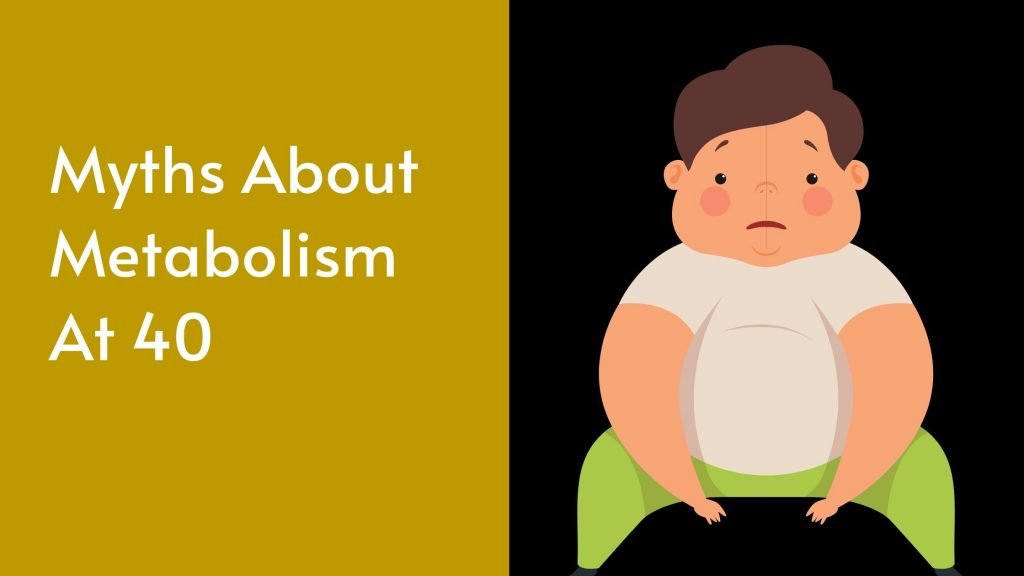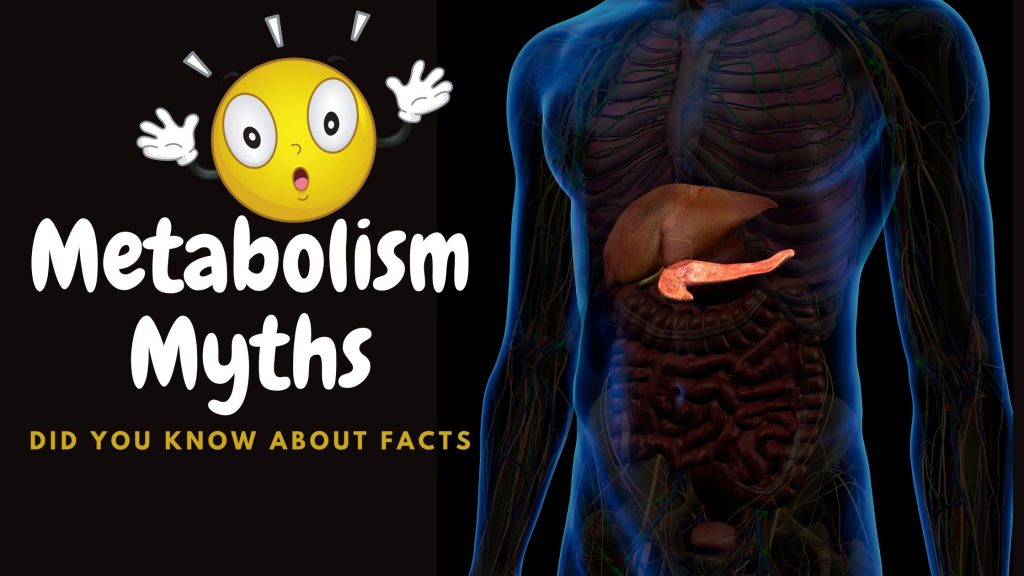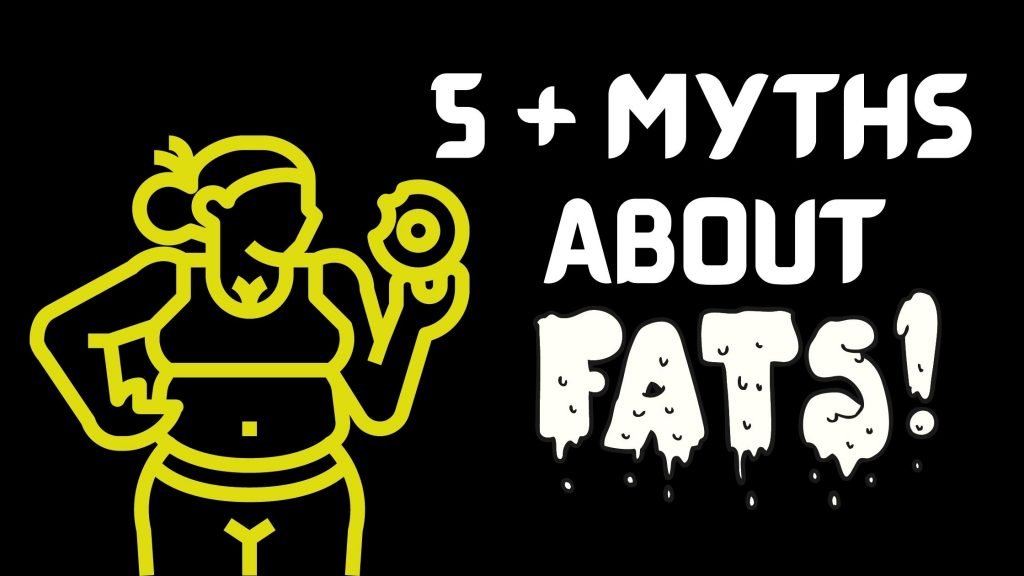If you are going to be turning 40, and doing regular exercise, you must be knows about all the facts & myths about metabolism.
One fine day you realize that although your diet is about the same and you are exercising almost the same as before, the bulge around your belly refuses to budge. Then it hits you that you have just turned 40, and maybe age is catching up with you!
Perhaps you’re not sure what’s going on, but you have an idea that it may have something to do with your metabolism, and maybe, just maybe, your metabolism is slowing down.
What is metabolism and how to effect in 40?
Metabolism is the process by which your body converts the food you eat into energy. In simple words, it is the number of calories your body can burn.
The higher your metabolism is, the more calories you burn, and the lower your metabolism is, the fewer calories you burn.
It is true that as you age, your metabolism tends to slow down by about 5% for every decade of life past age 40, and it gets harder to lose weight as you get older. You’ve to work doubly hard to maintain your fitness.
However, metabolism is only a small part of it; your lifestyle and diet play a role as well. Blaming only the metabolism for your weight woes is not correct.
You may have heard your friends blaming metabolism for weight gain or increased appetite, among other things. But all of it is not true – some of it is just myth.
It is in your best interest to understand what metabolism means and what it does to your body. And to know how you can remain fit in your 40s despite your metabolism. So, let’s bust the myths about metabolism at 40 by separating facts from fiction.
Myth #1: Skinny people have faster metabolism than overweight people
Skinny people don’t have faster metabolisms than overweight people. In fact, the bigger your body size, the more calories you burn.
That’s because your metabolism has to work more to keep the body functioning and provide energy.
So, if you lose around 10 or 20 pounds at the start of your weight loss journey, you’ll find it harder to continue losing weight afterward.
That is because, at lower body weight, you burn fewer calories, and so the amount of energy, or calories, you once required decreases.
That means you need to keep active and consume fewer and fewer calories to keep the pounds away.
Myth #2: Eating less is good for metabolism
Dieting or eating less may seem like a good idea to speed up the metabolism, but it may be counterproductive in the long run.
Consuming significantly less food or eating too few calories can cause your metabolism to slow down. This is because when you eat very less food, your body goes into starvation mode.
In starvation mode, your metabolism slows down, and you use less energy and burn fewer calories. Your body may also reduce muscle mass to conserve energy. Starvation mode tends to make you feel hungrier and sluggish.
Feeling hungrier can lead you to eat more and nullify your weight loss efforts. So, starvation is not a good idea for those in the 40s.
Myth #3: Crash diet is better than a moderate diet for metabolism
A crash diet or a restrictive diet may show you temporary results like that of boosting your metabolism and causing weight loss but in the long run crash dieting can actually make your metabolic rate lower.
However, a diet comprising moderate carbohydrate, moderate protein, and moderate fat can be beneficial for your metabolism. The reason behind this is that muscle breakdown is much greater with crash dieting, and Less muscle lowers your metabolic rate.
So, eating in moderation is the key to good health in the 40s.
Myth #4: Age slows down metabolism
Your metabolism slows as you age, but only if you become less active. So, staying active as you age is the best way to boost your metabolism.
While we can’t avoid the natural changes that come with age, we can surely do a few things to delay them.
Instead of conveniently blaming metabolism, staying physically active, eating right, and maintaining healthy habits can thwart significant metabolism changes until you approach your 60s or early 70s.
Myth #5: Intense exercise can boost your metabolism
You indeed burn more calories when you exercise, but when you are in your 40s, things are a bit complicated.
According to experts, if you overexert your body in your 40s, your body enters an inflammatory, stressed state, and your hormonal balance is disturbed, which messes with your metabolism.
So, instead of focusing on intense workouts, you should aim for consistency. Be regular, workout every day, and simply do the same stuff you always do – your metabolism will not suffer, and you’ll be able to maintain your fitness.
A 20-minute walk or jog, simple push-ups, skipping, or Yoga are great ways to workout.
Conclusion
Once you turn 40, losing weight or maintaining your fitness becomes challenging. People often blame their slow metabolism for failing to lose weight.
However, metabolism is not the only thing that you should blame for your weight struggles, although myths about the impact of metabolism on your fitness after the age of 40 abound.
Here we’ve tried to bust myths about metabolism at 40. Hope this debunking of myths helps you to manage your weight better and get fit.



